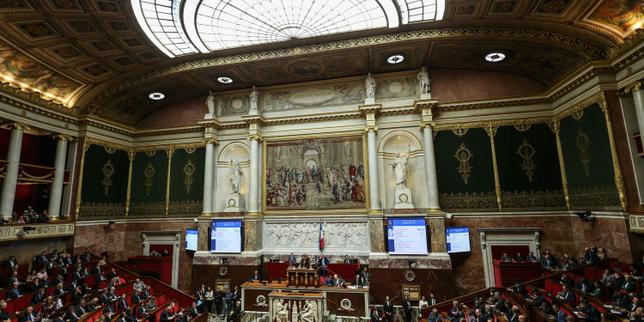French National Assembly's Finance Committee Rejects 2026 Budget Revenue Plan Amid Political Turmoil
The French National Assembly's finance committee has decisively rejected the revenue portion of the 2026 budget, revealing political fractures and casting doubt on its approval in the full Assembly.
- • The finance committee rejected the 2026 budget revenue section 37 to 11.
- • Opposition spans left, far-right, and some Les Républicains members.
- • Socialist Party demands budget revision to consider support.
- • Key tax measures on the wealthy failed to pass in committee.
- • Government relies on PS cooperation to avoid censure in final vote.
Key details
On the night of October 22 to 23, 2025, the French National Assembly's finance committee overwhelmingly rejected the revenue section of the 2026 state budget, with a vote tally of 37 against and just 11 in favor. This major setback signals deep divisions within the Assembly and threatens a political impasse ahead of the budget's final vote scheduled for November 4.
The rejection united opposition from the left, the far-right Rassemblement national, and several members of Les Républicains (LR), including prominent government ministers. Only the Renaissance party fully supported the government's proposal.
Philippe Brun, leader of the Socialist Party (PS), highlighted the budget's flaws by stating, "the account is not balanced tonight," indicating the PS's reluctance to back the current plan without substantial revisions. The government, headed by Sébastien Lecornu, thus relies heavily on Socialist Party cooperation to avoid a censure motion.
Eric Coquerel, president of the finance commission from La France insoumise (LFI), sharply criticized the draft, dubbing it a "Frankenstein budget" and predicting its defeat in the Assembly. Notably, the left-wing deputies' attempts to pass the Zucman tax, intending to levy a minimum tax on those with assets exceeding 100 million euros, and to reinstate the wealth tax, were unsuccessful.
Further government proposals suffered as well; tax relief measures targeting retirees, estimated to cost 1.2 billion euros, were blocked, along with modest adjustments to the freeze on income tax. However, the committee approved certain revenue-generating amendments such as a tonnage surtax impacting the shipping company CMA-CGM, a tax on super-dividends, higher VAT on luxury goods, and incentives for greener maritime fuels. Controversy also arose over an amendment reducing tax exemptions for social landlords, creating tensions.
Philippe Juvin, Les Républicains general rapporteur for the budget, described the plan as lacking credibility and abstained from the vote. This internal division underscores the challenges the government faces in securing support for the budget.
Upcoming debates in the National Assembly, starting October 24, will revisit the original government proposal. Given the committee’s rejection and political opposition, the final passage of the 2026 budget appears precarious, with potential consequences for France’s fiscal policy and governance stability heading into the new year.
This article was translated and synthesized from French sources, providing English-speaking readers with local perspectives.
Source articles (2)
Source comparison
Date of committee vote
Sources disagree on the date of the committee vote regarding the budget.
lemonde.fr
"The vote resulted in 37 against and only 11 in favor, during a committee vote on the night of October 22 to 23, 2025."
lemonde.fr
"On October 21, 2025, during the examination of the first part of the 2026 budget bill, the finance committee faced significant challenges, leading to an unsuccessful vote."
Why this matters: The first source states that the committee vote occurred on the night of October 22 to 23, 2025, while the second source claims it happened on October 21, 2025. This discrepancy is significant as it affects the timeline of events leading up to the budget discussions in the National Assembly.
Latest news
French Economy Minister Calls for Full Insurance Industry Mobilization Amid Devastating Storm Floods
France Boosts Social and Solidarity Economy with New Tools and Potential Tax Reforms in 2026
Saint-Nazaire Mayor Condemns Vandalism of Two Political Offices as Attack on Democracy
Severe Flooding Continues Across Southwest France Amid Ongoing Emergency Measures
Rise in Extreme Right-Wing Political Violence Shakes France Since 2022
2026 French Municipal Elections and Local Debates Reveal National Political Stakes
The top news stories in France
Delivered straight to your inbox each morning.

